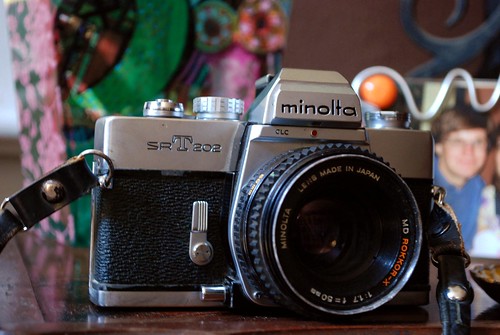Lately I have had a few people say something along the following lines to me: "Why don't you have an e-reader? / You need an e-reader! / Don't you read a lot? you should get an e-reader!" to which I usually respond with a simple and brief, "I really don't care for those". But apparently that has been insufficient so I'm preparing this overview of why I won't support them.
First off, let's just look at the practical issues involved with these. With a book, you throw it in your car/bag/purse/luggage/etc. and enjoy it when you are able. You don't have to stop reading it because the battery died. When I go to a coffee shop I can leave it on the table without wondering if someone is going to steal it. If it stays in the car the pages won't burn out from the heat they have been exposed to. Books are wonderful; they can get dirty, wet, bent, dropped, and even lost. An e-reader cannot. E-readers are also extremely expensive. For comparison, I'm going to use the Barnes & Noble Nook since I feel it is the best of the lot. To own a Nook, I must shell out $150. Now most classics are public domain so I could get them for free but when I want to buy a book I have to pay at least $9 for it. That seems absurd. Actually, let's not get ahead of ourselves because after my $9 is gone, I don't have a book. I have not exchanged my money for a tangible object of value, I have a packet of data. And that really isn't worth hardly anything despite how cleverly they assure you it is. Yes, I realize a new paper back is around the $15, but why are readers not taking advantage of the tremendous used book market? In fact, these devices attempt to eliminate it entirely. By and large I can pick up anything I'm interested in reading for under $5 and have it shipped to my house. Finally, have we as a culture completely forgotten that through our history the eminent importance of reading had obtained such a height that they created these big public buildings called libraries where you could even get books for free?
Now on to my feelings on the e-readers themselves. The creation of these devices completely destroys the act of reading. No longer can you enjoy the lightness of a book of poems or the heft of a Russian classic. Individual intricacies are annihilated. I qualify this next statement with "to my knowledge", but accordingly all books are now even in the same typeset? It seems tragic this would be the case but I can't find any info either way. But what is innately true to the device is the slaughter of the senses involved in reading. Reading is such a pleasurable activity because it engages three of your senses with a fair degree of unison. You feel the book, the pages, the wear, the binding; you smell the book, its age, even the house of a friend; and of course you see the book, and too are involved with its size, condition, and identity. For any fans of Orwell that may be reading, having your text stored in an online format opens the door for defilement as well. With printed to text you have at least a heavy degree of textual accuracy, give online storage a few years and see what passages are rewritten. But the most heartbreaking part to me is the death of the literary experience. When I travel, I take a few books to read and what if I read them all? I find a local used book store. I experience the city. I experience the coffee shop on the way. I experience the afternoon kiss with my wife when we find a park and rest. And I experience the individuality of the store, the person working and their conversation. And finally, one of the best aspects of being a book lover is the discovery of a book I would have never found if it hadn't caught my eye on the shelf or the gotten recommendation of the cashier.
And thus the e-reader takes a marvelous and lucid activity, the sheer hobby of reading and replaces it with an LCD screen and a charging cord. And when I could have talked to someone about the book I am reading while I'm out, that conversation is replaced with techno-savvy jargon about my device, how new it is, what model, how I like it or any other question that has no relevance to what I should be doing with it. And finally the book itself, an object of near perfect design, is replaced with an expensive piece of software pending demise from obsolesce. But at least it's trendy.






